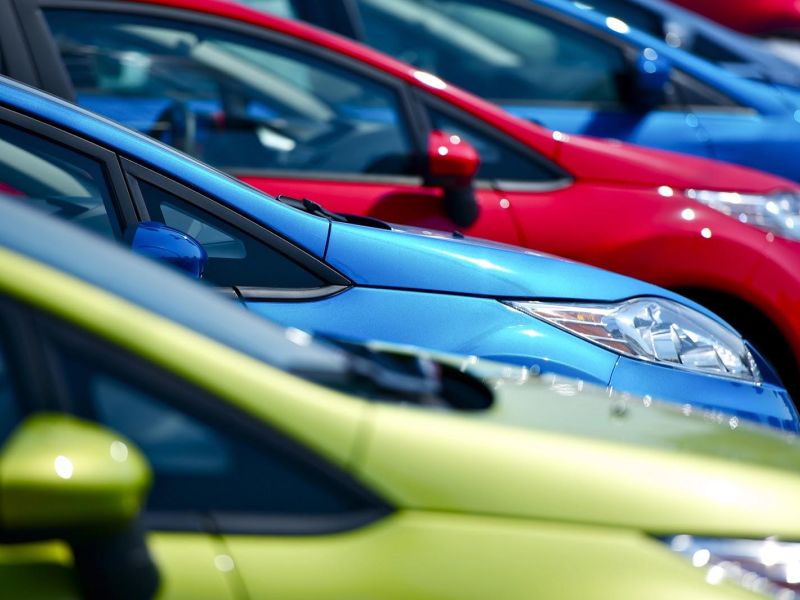
— Reckless Driving
Are Small Cars Safe?
When purchasing a vehicle, drivers have many reasons to consider a smaller car. They are easy to maneuver and park, have good fuel economy, and are often less expensive than larger vehicles. Add the standard features that most compact cars now come with, such as power locks and windows, keyless entry, and even cargo space, and the appeal of a small car is apparent. However, the answer to this one question may make you rethink whether a small car is right for you: Are small cars safe? Are you more or less likely to be injured or killed in an accident in a small car? Is one small car safer than others? Before your next vehicle purchase, consider contacting an experienced Virginia traffic attorney with Driving Defense Law by calling (757) 929-0335 to discuss the answers to these questions and more.
Is a Small Car Safer Than a Big Car?
According to the Insurance Institute for Highway Safety (IIHS), 15 of the 20 car models with the highest death rates in 2017 were small cars and minicars. In May of 2020, driver deaths were still highest among small cars. While some small cars are safer than others, the most fatal subsection of small cars is the mini four-door car with 78 deaths per 10 billion miles driven. Compare that to 40 deaths per 10 billion miles for the worst sport utility vehicle (SUV) subsection (small two-wheel drive luxury) and 23 deaths per 10 billion miles for the most dangerous subsection of trucks (large two-wheel drive pickups).
One reason behind the numbers is that a lighter vehicle does not have as much momentum as a heavier one. When an object moves, its kinetic energy increases. A vehicle’s kinetic energy is a combination of its mass and speed, and the greater the mass and/or speed, the more kinetic energy there is. In a multivehicle collision, a lighter car with less kinetic energy feels the impact of all that energy—its own plus that of the bigger vehicle—when both vehicles suddenly stop.
What Is the Safest Small Car in a Crash?
There are many factors that determine how safe a vehicle may be in a crash, including the vehicle’s maintenance and the driver’s experience and skill. Are small cars safe? Some smaller vehicles are considered much safer than others. The IIHS performs crash testing on each new model year of vehicles, from mini and compact cars to the largest trucks and SUVs. In each category of vehicle, they rank the safety of each model compared to others in the same category. In the small car category for 2023, the IIHS identified the following as the safest with their Top Safety Pick+ rating:
- 2023 Acura Integra 4-door hatchback
- 2024 Mazda 3 4-door hatchback
- 2024 Mazda 3 4-door sedan
- 2024 Subaru Impreza 4-door wagon
- 2023 Toyota Prius 4-door hatchback
- 2023 Toyota Prius Prime 4-door hatchback
Additionally, they also list their safety picks for previous model years dating back to 2006. This information is made available to allow those who want to purchase used vehicles to compare safety ratings and include that factor in their decision.
What Is the Safest Small Car Brand?
As previously stated, there are many factors that determine a vehicle’s overall safety. Once a vehicle is out of the hands of the manufacturer and dealer, it is up to the owner to maintain and drive it in a way that ensures continued safety. However, there are some brands that offer significantly more safety features, or whose safety features are more robust than those of other brands, thus making them safer.
Top Safe Small Car Brands
In 2023, the following makes, according to a Consumer Reports article based on IIHS testing, offer more Top Safety Pick+ and Top Safety Pick ratings than others:
- Toyota
- Lexus
- Honda
- Acura
- Mazda
The Consumer Reports list is shorter than in years past (though more are added throughout the year as crash testing continues) because the IIHS has implemented more stringent safety standards for vehicles to meet in order to get the top rankings.
Safety Improvements for Your Preferred Car
When a driver chooses to purchase a small car that does not have a high safety rating, they may have several reasons for making the purchase. Even if the car selected has not earned one of the highest safety ratings, these drivers may have options to improve the safety rating of their chosen vehicle. One option is to determine the area in which the vehicle has been shown to underperform. Choosing a model with a higher trim level or optional features can mean choosing a vehicle with a better safety rating than the base level models.
When purchasing a secondhand vehicle, looking at the safety ratings for the model year is a good start. However, prospective buyers should also check the vehicle’s accident history using the vehicle identification number (VIN). They may also wish to have a mechanic thoroughly examine and test drive the vehicle to confirm that there are no safety issues due to a lack of maintenance or inferior repairs.
Are Small Cars Safer Than Trucks?
Are small cars safer than trucks? Clearly, there are some small cars that can be very safe. Unfortunately, they are not safer, as a general rule, than SUVs and trucks. These larger vehicles are less likely to be damaged in an accident. Due to their size, they also tend to result in fewer and less severe injuries to the occupants, as well as fewer fatalities. Of all vehicles, minivans have been found to have the safest records. However, this may be due to the fact that the drivers of minivans tend to have children as passengers and, therefore, drive more cautiously.
Besides relative size and weight, another factor to consider when comparing different vehicle sizes and safety is quality. In 2002, a researcher from Lawrence Berkeley National Laboratory and another from the University of Michigan collaborated on a study published in Berkeley Lab’s Science Beat that determined a vehicle’s quality is more important for the vehicle’s safety than its weight.
What Other Factors Affect Safety in a Car Crash?
Safety ratings from IIHS or other institutions are based on the safety features identified in a particular vehicle. These might include airbags, brake assist, lane change detection, blind spot activation, and even headlight brightness. While these features certainly increase safety in a vehicle, there are other factors that can significantly impact how safe a vehicle can be in a crash, including:
- Whether the individual is a vehicle occupant: Individuals in larger vehicles are likely to sustain less severe injuries than those in smaller vehicles. However, that same larger vehicle may also cause more significant injuries to a pedestrian or cyclist than a smaller vehicle.
- The point of impact in the crash: The National Library of Medicine indicates that occupants of small cars tend to receive more severe injuries in frontal collisions, but large vehicle occupants receive marginally more severe injuries in side impact collisions. Whether the occupant is a driver or passenger in the front or back seat, the relation to the point of impact also determines that person’s safety level in any vehicle.
- The collision partner: Small cars tend to be involved in more crashes with other vehicles than with roadside objects like trees, traffic signs, or light poles. Larger vehicles are more frequently involved in accidents with roadside objects. Small cars face more injuries and fatalities in frontal collisions with other vehicles, followed by side impact collisions. Large vehicles see more injuries and fatalities in frontal collisions with roadside objects, followed by side impact collisions with other vehicles.
- Road and traffic conditions: Slippery or icy roads, rainy or snowy weather, and other road or weather conditions can cause a driver to have less control over the vehicle, regardless of its size. Traffic may also affect vehicle safety. Both road conditions and the behavior of other drivers can be unpredictable, potentially giving rise to hazards that increase the likelihood of even a very cautious driver experiencing a more significant accident while trying to avoid the hazard. If you have been involved in an accident and were ticketed, an attorney with Driving Defense Law may be able to help.
- The age and experience of the driver: In some circumstances, a driver’s age and driving experience may contribute to the safety of the individuals in the car. For example, an older, more experienced driver may be more likely to remember to pull an emergency brake when the brakes fail than a new driver.
How To Be Safe in Any Size Vehicle
Many may believe that the question should be, “Are small cars safe?” However, considering that every category of vehicle has fatalities and that injuries can occur in any accident, perhaps the better question would be, “How can I be safe in a vehicle of any size?” The answer to that question includes the following:
- Always wear a seatbelt
- Make sure the vehicle is properly maintained with regular oil changes, engine tune-ups, alignments, brake changes, and properly inflated and rotated tires
- Each driver should adjust the mirrors and seats for the broadest view around the vehicle
- Focus fully while driving and avoid texting, eating, and other distractions
- Do not drive while under the influence of drugs or alcohol
Have You Been Involved in a Collision With a Smaller Car?
Are small cars safe? The size of your vehicle is your choice. Choosing a larger or smaller vehicle should not result in being punished if you are involved in an accident. If you have been involved in a collision with a smaller car and believe that you were unfairly ticketed as a result, consider contacting an experienced Virginia traffic attorney with Driving Defense Law. Call (757) 929-0335 to schedule a free consultation to learn more about your legal options.

